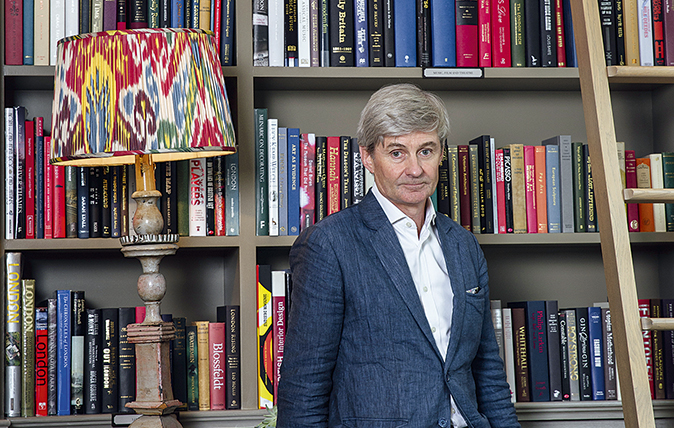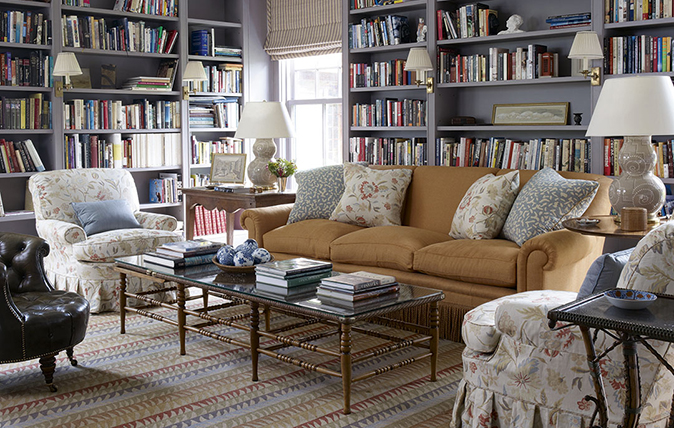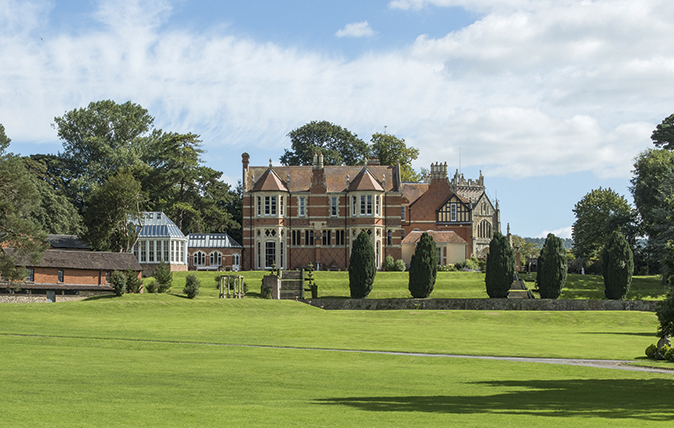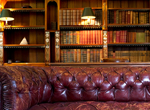How to create your own library – book expert Philip Blackwell shares his tips
Book expert Philip Blackwell, founder of Ultimate Library, offers advice on creating a library from scratch.


Exquisite houses, the beauty of Nature, and how to get the most from your life, straight to your inbox.
You are now subscribed
Your newsletter sign-up was successful
Why did you set up Ultimate Library? I’m passionate about books, with bookselling and publishing in my blood: my great-grand-father founded Blackwell’s. When I left the family business in 2006, I spent time travel-ling and staying in good hotels, which pretended to have a library. However, when I looked at the quality of the books, they were usually pretty lacklustre. I thought I could do better and, fortunately, some of the owners agreed, so now we create bespoke book collections for hotels, resorts and private residences all over the world.
Why are you so passionate about the idea of matching book to location? In my publishing years, I’d be sitting in a bar in Tokyo or Cairo when the conversation would turn to the best book to read on the city. Someone would say ‘You’ve got to try Daniel Martin by John Fowles because it has the best description of drifting down the Nile’ and I’d be off to find a copy. Seeing a place through a fiction writer’s eye enlivens your whole experience. I’ve just come back from Transylvania, where I read Patrick Leigh Fermor’s Between the Woods and the Water from the 1930s and then Walking the Woods and the Water by Nick Hunt, who followed in his footsteps only a few years ago. They brought the country to life.
Print versus Kindle? We’ve been through ‘it’s all going digital’ so much that there’s a feeling we spend too long in front of our screens. A printed book has a pleasing ‘authenticity’ that’s akin to vinyl or foraging. Everything about it is beautiful, from the touch to the smell of the paper.
How do you create a library for a client? We learn the client’s interests and what they enjoy reading, then consider location and, sometimes, aesthetics. For example, we’ve had projects for which we’ve created a wall of orange-spined Penguins as an accent of colour or a collection of leather-bound books in which the contents were less important than the look. We also consider whether the shelves are to be filled on day one or if the books are to be gathered over time. A good library should have a mix of old and new: too many new books will make you feel as if you’re living in a bookshop.
How do you find the right books? Our team has a combined experience of more than a century, so we have a good sense of the best works on most subjects and we stay up to date. There are hundreds of books on happiness, for example, but Paul Dolan’s Happiness by Design is a good primer. If you’re keen on anthropology, Sapiens and Homo Deus by Yuval Noah Harari offer probably the clearest explanation of a big idea.
Which books should every library have? A Little History of the World by E. H. Gombrich is a book to be included, because it’s a fast and furious read to remind us of where we’ve come from. The Everyman’s Library ‘Classics’ are essentials, because there will be one that’s set in almost every country in the world: in Austria, it’s The Radetzky March by Joseph Roth and in Sicily, it’s The Leo-pard by Giuseppe Tomasi di Lampedusa. We like to add books that people have always meant to read, which they can dip into, such as Herodotus’s The Histories, plus books that tease a little, such as Sex in the Sea by Marah J. Hardt, about romantic lobsters, kinky squid and hermaphrodite fish. It’s currently going into all beach properties.
What was your most challenging recent request? Twelve linear metres [40ft] of books on art and architecture with spines only in grey, cream and white.
Exquisite houses, the beauty of Nature, and how to get the most from your life, straight to your inbox.
The book you would save from a fire? I read voraciously, so it would change every week. Today, it would be The Sixteen Trees of the Somme by Lars Mytting, which is deeply poignant.
Ultimate Library (020–3693 2187; www.ultimatelibrary.co.uk)

Contemporary library design ideas
A look into how an interior designer achieves a certain look or atmosphere. This week: the contemporary library.

The grand house with the largest library west of Salisbury
The library at Chanters House was designed for Lord Coleridge’s 18,000 books.

The importance of the library
Despite the growing popularity of e-books, or perhaps because of it, the country house library is undergoing something of a
Country Life is unlike any other magazine: the only glossy weekly on the newsstand and the only magazine that has been guest-edited by His Majesty The King not once, but twice. It is a celebration of modern rural life and all its diverse joys and pleasures — that was first published in Queen Victoria's Diamond Jubilee year. Our eclectic mixture of witty and informative content — from the most up-to-date property news and commentary and a coveted glimpse inside some of the UK's best houses and gardens, to gardening, the arts and interior design, written by experts in their field — still cannot be found in print or online, anywhere else.
